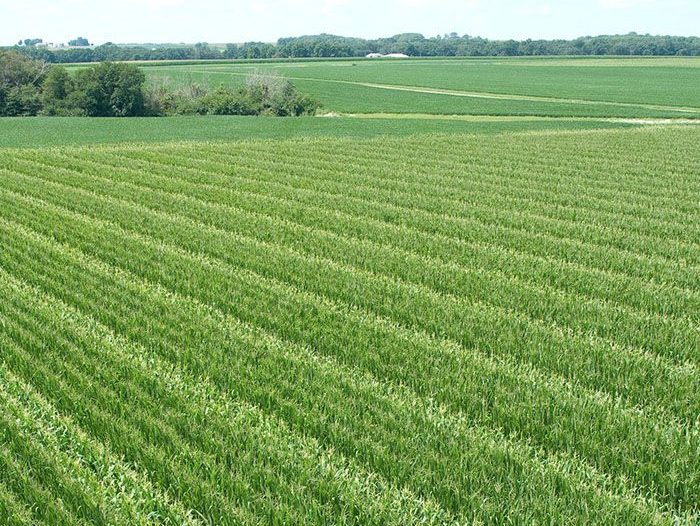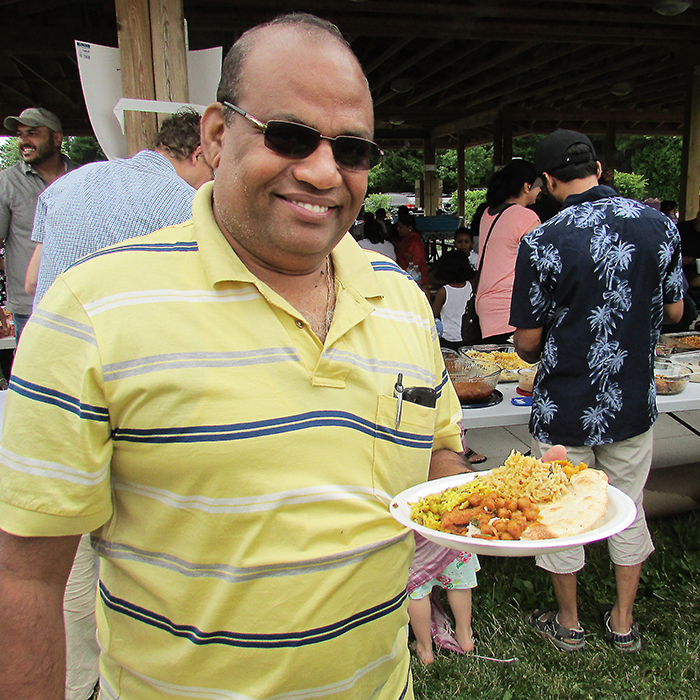
By Michael Bennett
Local Journalism Initiative Reporter
The Ridgetown Independent
Chatham-Kent council can expect a number of deputations from individuals and groups opposing the proposed one-per-cent farm tax ratio hike at the April 24 meeting.
Council voted 9-8 in support of West Kent Coun. Lauren Anderson’s motion asking administration to consult with stakeholders and prepare a report with recommendations of raising the farm tax ratio from 0.22 to 0.23.
Members of the Chatham-Kent Property Owners Association, Kent Federation of Agriculture, Grain Farmers of Ontario and other individuals plan on speaking to council during the deputation portion of the April 24 meeting.
“People have been reaching out to talk to councillors,” said Jim Brackett, CKPOAC vice-president. “We’re trying to lobby positively, not negatively.”
If the eight ‘nay’ voters don’t change their vote, the lobbyists only need to sway one other councillor or the mayor to defeat the motion.
Anderson’s motion delays administration’s recommendation to approve the 2023 Tax Policy as the municipality continues to wait for the province to set its new Municipal Property Assessment Corporation (MPAC) rates.
The municipality is currently working on MPAC rates set in 2016, which are not expected to be updated until at least 2024.
The farm tax ratio was dropped from 0.25 to 0.22 in the mid-2010s to give farmers some relief when the agricultural industry was struggling, with the intent to eventually bring it back to the 0.25 level once conditions improved.
Motions have been brought to council on at least three occasions in the last seven years, including 2022, to raise the farm tax ratio but were defeated each time.
“Through conversations, I realized it was because direction from council was not to bring an increase until the MPAC report was in,” Anderson said of the past failed motions.
Still, the first-term councillor was surprised raising the farm tax ratio was not included in the recommendations for the 2023 Tax Policy.
“It’s been several years, and I think it’s very well known that farming has been very successful for several years, especially within the last three years, while commercial, residential and industrial have taken a huge hit as far as their profits have gone and how they’ve functioned,” Anderson said.
“I think at this time, it warrants a conversation for us to look at what we can do to offset and start to make those decisions to get back 0.25 percent,” she declared.
Council’s 9-8 vote to accept Anderson’s motion reflected on the urban-rural divide in the Civic Centre Horseshoe.
Seven rural councillors – East Kent’s Steve Pinsonneault and John Wright, South Kent’s Trevor Thompson, Anthony Ceccacci and Ryan Doyle, North Kent’s Jamie McGrail and Rhonda Jubenville – all voted against the motion, along with an eighth, Chatham Ward 6 Councillor Amy Finn, who is a Blenheim native.
The other five Chatham councillors – Conor Allin, Brock McGregor, Michael Bondy, Marjorie Crew, and Alysson Storey – and Ward 5 Wallaceburg’s Carmen McGregor and Aaron Hall, Mayor Darrin Canniff and Anderson all voted in favour.
“I’m not in favour of it. I didn’t support it going back to administration,” Pinsonneault said. “Every day is a struggle. Somebody’s always taking a dollar from them.”
Wright agreed, saying he doesn’t think council “should be attacking the farmer.”
“You increase the farmer’s tax. That just goes over to the residential tax. Every time you have an increase, it’s passed on to the consumer,” said Wright. “They put the farm tax up; it’s going to affect the prices at the kitchen table, so everybody’s going to pay more.”
Brackett said the position of the KFA, Grain Growers and the newly formed Chatham-Kent Property Owners Association is the municipality should wait for the MPAC assessment, which was administration’s recommendation in tabling their 2023 Tax Policy.
The retired New Scotland Line farmer said he had issues with some of the observations made by Anderson as she presented her motion.
“Councillor Anderson indicated in her comments that farmers got the carbon tax rescinded by Bill C234, but that has not been passed in law,” Brackett said. “It’s passed three meetings in the House and now sits with the Senate, so it is not passed.”
Brackett also said Anderson’s comments that “everyone knows farmers have been making money” was not entirely factual.
“That’s just the Chicago Board of Trade Commodity prices,” he said. “Unfortunately, in farming, when the price of grain goes up, the price of seed, fertilizer and every input we use goes up.”
“The other unfortunate part, when the commodity prices drop – which they always do – traditionally the other prices don’t come back down,” said Brackett. “They may not increase as fast, but they don’t come back down.”
“It’s one thing to have more income, but when you have more expenses too, it’s not necessarily much of a windfall, as was suggested at the council meeting,” stated Brackett.
Brackett said farmers would deal with whatever decision comes from the April 24 council meeting.
“But if we can affect a decision to help our members and their expenses, we will,” Brackett noted.






